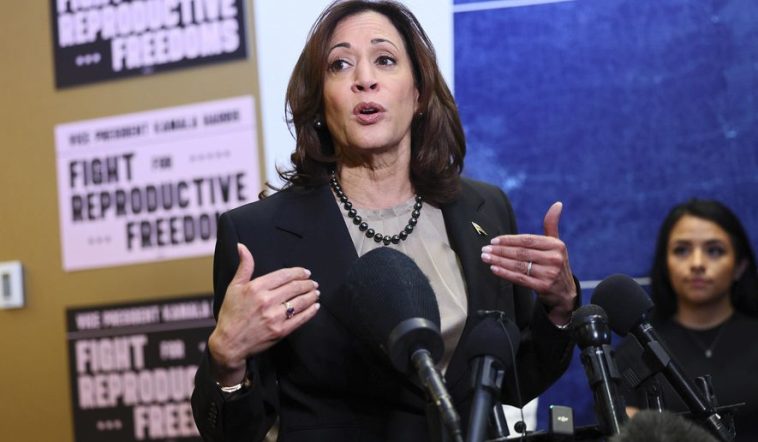New insights into the shifting influence of religious voters on the US political scene have emerged, as postulated by research data from Lifeway Research and the Pew Research Center. Interestingly, despite a backlash over a recent change in stance on abortion, loyalty from white evangelical Protestant voters to Trump continues to remain largely unscathed. For these Trump-supporting religious voters, issues of immigration prove to be of utmost importance, even while they readjust to the existing political scenario featuring Kamala Harris as the Democratic nominee, as opposed to Joe Biden.
Reflecting on the trends since the announcement of Harris as the Democratic candidate, one can observe a curious split in the religious voters’ preference. Lifeway Research’s report, collected from August 8 to September 3, surveyed various Protestant pastors to gauge their political leanings. Similarly, the report by Pew compiled during the same period, analyses the political inclinations of voters drawn from different religious backgrounds.
A glance at the significant points raised by these reports reveals shifts and patterns of interest, chief among them being the religious community’s outlook on Kamala Harris compared to Biden and their evolving views on Trump fueled by the rate of abortion’s conflict. It appears that since 2016, the strong alliance evangelical voters formed with Trump hinged on the crucial issue of abortion. However, recent developments suggest a change in this tone, with Trump and his colleague Senator JD Vance now favoring state-determined abortion regulations coupled with in vitro fertilization (IVF). Conservative evangelicals, keen on encountered stricter nationwide abortion laws and increasingly against IVF, find Republican’s altered stance on reproductive health outrageous and feel betrayed.
Prior to Biden’s exit from the political race, an earlier report published in April by Pew disclosed that Trump enjoyed the support of a whopping 81% white evangelical Protestant voters and 61% white Catholics. In contrast, Biden notably had the backing of 77% Black Protestants and 49% Hispanic Catholics. With Harris now in the running, expectations are high for an increase in support among non-white faith groups, predominantly from historically Black church congregations.
Harris holds affiliations with a historically Black church in San Francisco that is associated with the National Baptist Convention, USA, headquarters in Nashville and the nation’s largest Black Protestant group. Key statistics from the newly released reports by both Lifeway Research and Pew highlight some intriguing findings.
The Lifeway Research survey showed that 50% of the pastors intend to vote for Trump, while 24% support Harris. Of those backing Harris, the majority were Black (71%), with whites constituting 21% of her supporters. As per Pew’s recent report on religious voters, 86% of Black Protestants and 65% of Hispanic Catholics have pledged their vote for Harris, witnessing a promising rise of 9 percentage points among Black Protestant voters and 16 percentage points among Hispanic Catholics, as compared to Biden’s figures.
The survey results suggest negligible change in the overall Trump-supporting white evangelical Protestant voters and white Catholics, maintaining the religious dynamics of the US presidential campaign largely as they were during spring.
A critical revelation from the new Lifeway Research and Pew reports points to party affiliation as the key determinant of religious voters’ choice between Harris and Trump. This suggests that the voters’ concerns are not limited to single issues but are spread across multiple areas vital to both the Democrats and Republicans.
Based on the Lifeway Research report, the main factors guiding a pastor’s vote include – national security, religious freedom, foreign policy, economic considerations, immigration, abortion, and the personal character. Of these, the recent Pew report underlines immigration as the issue with the highest importance among faith groups that are likely to support Trump, such as white evangelical Protestants and white Catholics.
Pastors are not one-issue voters. Rather, they demonstrate a deep interest in a spectrum of issues significant to the presidential elections, as noted by McConnell’s statement on the Lifeway Research findings. This revelation challenges common perceptions, revealing that abortion is not the most dominant issue even for evangelical Christians and white Catholics.
Circumstances suggest a wavering response to the recent comments made by Trump about abortion. Some conservative Christians have reprimanded these comments for being no less pro-choice than the Democrats. Pew adds that fewer Catholics and white Protestants ranked abortion as a vital issue compared to the more Democrat-leaning religious voters, such as atheists, agnostics, and Jewish voters.
Lifeway Research observed that among the pastors favoring Trump, 29% emphasised on abortion being an important issue. This group predominantly comprised older, white, male, evangelical pastors. Conversely, pastors identifying as women, Black, and affiliated with mainline Protestant groups agreed on the importance of personal character as a determinant in their voting decision.
In conclusion, these findings suggest shifting dynamics and patterns within the political preferences of religious voters, primarily driven by evolving perspectives on key issues such as abortion, personal character, and immigration. While the campaign progresses, voters will continue to weigh the leadership qualities of the candidates against their respective stance on these pivotal topics.


